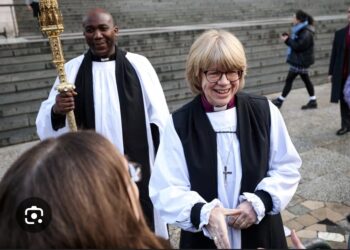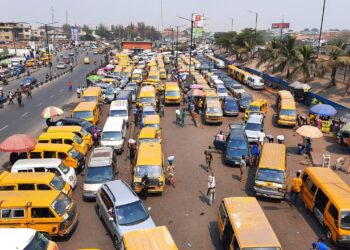 A group of injured and sick Chibok schoolgirls freed by Boko Haram will be supported by a Nigerian charity to get the treatment they need, after the girls’ parents said the government had failed to help them to pay their medical bills.
A group of injured and sick Chibok schoolgirls freed by Boko Haram will be supported by a Nigerian charity to get the treatment they need, after the girls’ parents said the government had failed to help them to pay their medical bills.
But campaigners said they were concerned about the health of all the kidnapped schoolgirls and said a clear process must be put in place to ensure their medical needs were met.
The mother of 27-year-old Naomi Adamu – one of more than 200 schoolgirls abducted by the Islamist group in April 2014 – last week told the Thomson Reuters Foundation she could not afford the surgery her daughter needed for a kidney condition.
“We have written to the presidency asking for permission to support Naomi with the treatment she requires,” said Aisha Muhammed-Oyebode, MMF’s head and a co-founder of the “Bring Back Our Girls” campaign that drew international attention to the abduction.
“We are going to provide Naomi and her family with accommodation in Abuja while she undergoes treatment. We will also provide her with psychological assessment.”
While the Nigerian government provided the girls with some medical care and counselling and had sponsored them on a catch-up course at the American University of Nigeria (AUN) in Yola, the girls’ parents said the government and university had passed the buck on paying for their continued healthcare.
Five of Adamu’s classmates at AUN were suffering with injuries inflicted in captivity, from shrapnel wounds to broken bones, said Yakubu Nkeki of the Chibok parents’ association.
The girls, snatched over three years ago from their school in northeastern Nigeria, were among 82 freed by the jihadists in May, adding to 24 others who were released or found last year.
Diene Keita, country representative for the U.N. Population Fund, UNFPA, said the agency would also support the girls.
“We will do as much as we can for the girls’ health. Naomi will be taken care of,” she told the Thomson Reuters Foundation.
A spokesman for the ministry of women’s affairs said the university fees paid by the government include medical bills, but an AUN spokesman said that only covered routine illnesses.
Nkeki said he was relieved help had come for Naomi and the other girls, but was concerned that the same support would not be in place if other freed schoolgirls required medical care.
“This is not what the president promised us. He promised to take care of all our daughters so that they will never remember anything they went through in the forest,” he said.
Muhammed-Oyebode said a protocol must be put in place for the care of all the Chibok abductees, including those yet to be freed.
“We want them all back and we will keep campaigning for that, but we also need to be concerned about what happens to them when they are brought back,” she said.











